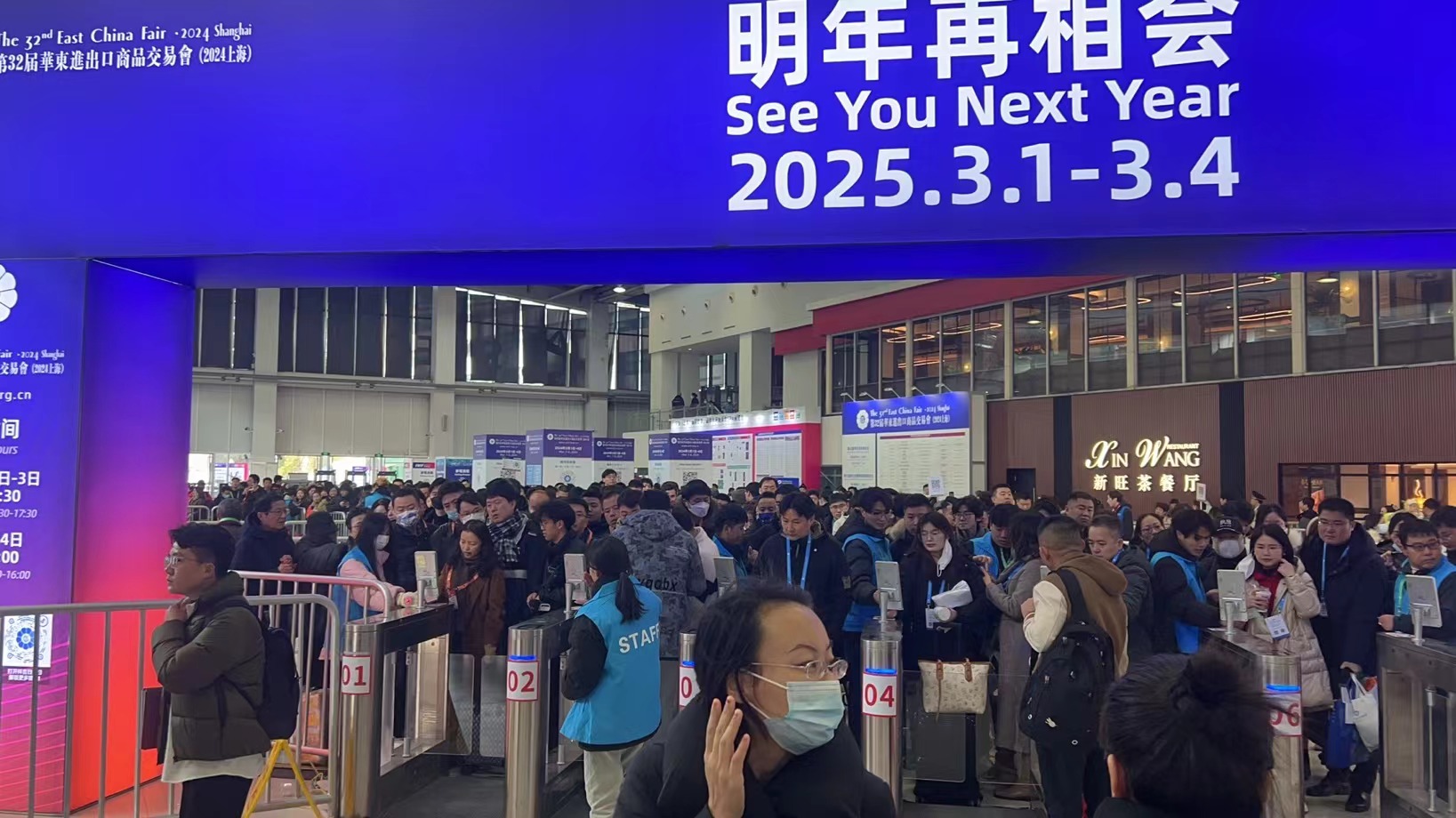您的位置:资讯>观察>美国24个州特赦卖家销售税却隐藏大杀招?
美国这些本来就缺钱的州,被砍掉很大部分的税收收入,被节流了,自然要开源,放眼望去,美国境内除了那些不好得罪的巨头外,正好躺着一块最大也是最肥的肉。
大家好,我是中国更接地气的跨境电商专业研究所「跨境二米show」所长兼总编阿米。
这是跨境二米Show第93篇文章。
前些日子,我跟大家说了有关
美国跨州税务委员会及国家管理项目委员MTC协同23个州+1个特别行政区向美国电商卖家限期自愿披露计划,特赦令期满后隐藏大杀招。
写完以后,我一直在想如何跟大家继续分析后续的应对,因为对于很大部分的中国卖家来说,英国和德国的VAT已经被搞得人仰马翻,很多人甚至把这事提升到「老外欺负中国人」这样的角度上去。对于这样的不理智卖家,我只能绕路。
对于理性看待这个问题的卖家,我还是挖到一个很有意思的东西给大家,让大家看看老美卖家是怎么样看待这个问题,虽然有一半以上的美国卖家「非官方数据民间评估」表示将参与这次特赦令计划,登记成为纳税人并缴纳计划中的相关税费。
可是,当特朗普总统的税改计划公布以后,我深深地明白了一点:
美国这些本来就缺钱的州,被砍掉很大部分的税收收入,被节流了,自然要开源,放眼望去,美国境内除了那些不好得罪的巨头外,正好躺着一块最大也是最肥的肉:
美国24个州特赦卖家销售税却隐藏大杀招?卖家如何规划应对大逃杀?
先来看看特朗普总统的税改计划
图片搜集自网络
这么一弄,连最大的遗产税都木有了,美国各州政府不翻桌子才怪。
也是有了我们在看的这个电商卖家自愿披露特赦计划。
再来看两张图:
这是已经加入MTC计划的各州名单,看到图中有小方块的州名字了吗?
=
然后,我们来看下图:亚马逊在美国本土的FBA仓库分布图
看明白了嘛?不少亚马逊FBA重仓所在地的州已经加入了MTC计划!
我不再说势在必行的美国州政府,我找到一封由某个服务商发起在美国卖家社群中被不同媒体广泛传播的公开信,你们先看看。
下文为全文转载并由所长翻译,这里仅把此新闻素材做所长阿米个人英文翻译学术研究使用,不代表本人、本公众号言论或任何立场。如有错漏,请联系本人rice_cheng@foxmail.com进行编译。
Open Letter to the MTC&The States Participating in the MTC’s Online Marketplace Seller Voluntary Disclosure Initiative
至MTC跨州税务委员会及所有参与MTC计划的州有关在线电商平台卖家自愿披露计划的公开信
This letter is sent to you on behalf of many of the small businesses that collectively make up a substantial portion of the Amazon marketplace third party community(“Marketplace Community”),who are requesting that their voice to be heard,and concerns addressed with respect to the MTC’s Online Marketplace Voluntary Disclosure Initiative(“Amnesty”).
这是代表很多事实上组成亚马逊电商平台重大比例的第三方社群「在线电商社群」中的微小商户们而致信给你们,这些微小商户们要求他们的呼声被MTC的在线电商平台自愿披露计划「所谓的“特赦计划”」听到、关注以及尊重他们所关注的问题。
「此倒计时是卖家自行制作,所长的截图,目前在倒计时中」
First and foremost the Marketplace Community respectfully requests that the MTC Immediately Stop the Amnesty Clock,removing the fear and paranoia that has swept the Marketplace Community,and take time to address the Marketplace Community’s specific concerns.
第一点也是在线电商社群正在恭谨地请求MTC立即停止特赦令倒计时,移除这个计划造成并席卷在线电商社群的恐慌和疑虑,同时安排时间表聆听和处理在线电商社群所特别关注的要点
The Marketplace Community Objects to the MTC’s Factual Conclusions Driving This Initiative
在线电商社群反对MTC决定推进这个计划的所谓真实结论
The Marketplace Community respectfully disagrees with the MTC’s attempt to place the Sales&Use Tax(“S&U”)collection burden on the domestic and international Marketplace Community,most of whom are small businesses.
绝大部分都是微小商户的在线电商社群对MTC试图向国内及国际电商社群推卸代缴代扣销售税/使用税责任表示并不认同。
The Marketplace Community disagrees with the MTC’s position that Amazon sellers are required to collect sales tax simply because they participate in the Fulfillment by Amazon program(“FBA”).Such activities alone do not exceed the constitutional threshold of requiring Physical Presence,as established in the Quill case,nor does such activity establish a Substantial Nexus with the state as required in the Complete Auto case.
在线电商社群不同意MTC简单粗暴地处理只因卖家们使用亚马逊的FBA服务就被简单粗暴地要求自行代缴代扣相关销售税问题时的位置。
Notwithstanding the above,the Marketplace Community believes the relevance of this legal distinction is Moot,as established state tax law requires the retailer/vendor to collect S&U.Therefore,the burden to collect and remit S&U falls squarely on the person that“makes”the sale,and in the case of FBA transactions that person is Amazon.
尽管有着上诉的各种不同意,在线电商社群们相信,争论这个法律差异的事实是无意义的,正如建立要求零售商们/经销商们自行代缴代扣相关销售税/使用税的相关州法律一样。所以,所谓因「销售」而产生的对其客户进行销售税/使用税代扣代缴责任就直截了当地要求扣在这些使用亚马逊FBA仓储及物流配送服务的商户们身上。
Third-Party Product Providers are Not Retailers
第三方商品提供者不是零售商
For reasons unknown to the Marketplace Community,the jurisdictions participating in Amnesty program are turning a blind eye to the well established factual and legal reality that Amazon is the Vendor/Retailer,not the Marketplace Community.For example,Florida law defines a retailer as follows:
由于一些不被在线电商社群所知的原因,有关税务特赦计划的司法参与权利被掩盖,同时也掩盖了亚马逊是事实上的经销商/零售商的真实和法律事实,而并非在线电商社群。比如说,佛罗里达洲的法律是按下文这样定义零售商:
“Retailer”means and includes every person engaged in the business of making sales at retail or for distribution,or use,or consumption,or storage to be used or consumed in this state.
所谓的零售商是指:在本州范围内进行包括参与促使零售或分销销售,或使用,或消费,或储存的以使用或消费的业务的每个人
The MTC’s position that Amazon is not a retailer in a FBA transaction is absurd when considering that,with respect to Marketplace Community transactions,Amazon does all of the following retail sales activity:
而在MTC的眼中,亚马逊虽然提供了FBA物流转运服务但是却不被认为是零售商,事实上是荒谬的,尤其是当我们考虑到,在整个在线电商社群的商品转运服务中,亚马逊事实上实施着以下所有零售销售活动:
Interfaces with the customers;与消费者进行交流
Controls the customer shopping experience and customer interactions;管理消费者购物体验和消费互动反馈
Facilitates all aspects of the retail sale process;为整个零售销售过程的各个方面提供设施支持
Maintains the retail website from which customers can buy goods offered by the Marketplace Community;运营为消费者能购物由在线电商社群提供商品的在线零售网站
Displays and advertises the Marketplace Community’s product listings;展示并宣传在线电商社群的产品详情页面
Controls what can and cannot be said in the product listing;管理产品详情页面中的有关描述内容
Controls what can and cannot be sold by the Marketplace Community;管理在线电商社群有关可销售的产品
Accepts payments through its payment processor,which includes the use of Amazon.com branded retail gift cards which may be redeemed for retail purchases of inventory supplied by Amazon or inventory supplied by the Marketplace Community;通过其支付系统接受消费者付款,这包括可以使用于购买亚马逊自营的商品或在线电商社群提供的产品的亚马逊品牌零售礼物卡
Manages every aspect of inventory logistics for Marketplace Community members who participate in FBA;管理在线电商社群使用FBA仓储物流配送其商品的每一个库存物流服务
Packages and delivers the Marketplace Community member’s product to the buyer;把在线电商社群成员的产品包装并运输给买家
Processes all Marketplace Community returns;处理在线电商社群的所有退货
Retains sole authority in determining whether a return is due to the fault of the buyer or seller;保留因买家或卖家的问题而产生的退货最终决断权力
Requires the Marketplace Community member to absorb expenses associated with returned merchandise,even when damaged by the buyer;要求在线电商社群成员们承担退货商品产生的相关费用,即使是由于买家产生的损坏。
Requires the Marketplace Community member to absorb the cost of damaged merchandise in the Amazon facilities,even if it’s Amazon’s negligence which caused the damage;要求在线电商社群成员承担在亚马逊设施内损坏商品的相关费用,即使这是亚马逊造成的损伤。
Guarantees the Amazon experience by ensuring satisfaction with respect to the products,vigorously siding with the buyer,and forcing Marketplace Community members to absorb costs associated with Amazon’s assurance of a positive customer experience,even if the need arises from actions of the buyer,or Amazon itself;通过各个方面确保亚马逊购买商品的体验,严重向买家们倾斜,迫使在线电商社群成员承担保障消费者体验保证的相关成本费用,即使这些需求是由买家或亚马逊自己而产生
Disciplines members of the Marketplace Community for violations of its retail policies;管理并惩戒违反其零售条例的在线电商社群成员们
Provides little to no recourse for members of the Marketplace Community to complain or object to decisions made by Amazon that are detrimental to the Marketplace Community members.在亚马逊作出事关在线电商社群的相关投诉或决策时仅给予成员们少量甚至没有任何资源支持。
Based on these facts,it’s difficult to see what’s left for the Marketplace Community members to do that could be considered retailing,when all of the“retail”activity is borne by Amazon.Certainly,the fact that the Marketplace Community members are free to set their own price is not relevant.Afterall,product manufacturers often require retailers to maintain a set price,that does not make them retailers.
基于上述的各项事实,当所有的「零售」行为是由亚马逊承担时,不难发现还有什么事情是留给在线电商社群成员们做且被判断为零售行为。
The MTC’s position also raises consistency concerns in terms of who the retailer is based on whether a product is purchased from Amazon directly,or through a Marketplace Community member.Under the MTC’s view,Amazon is a retailer if a buyer buys something by clicking on one link that is Amazon direct,but suddenly not a retailer if a buyer buys that very same item using a third-party FBA link,even though the buyer may not even know the difference in terms of who they are buying from,and Amazon’s role with respect to how it services the customer in both instances is identical.
MTC在通过判断商品时从亚马逊直接购买或时从一个在线电视社群成员中购买而来定义谁是零售商时的立场一致性也被高度关注。在MTC的观点下,如果一个卖家直接点击亚马逊一个链接而购买了一些产品,亚马逊会被判定为「零售商」,但如果卖家从一个使用亚马逊FBA物流服务的第三方中购买了同样的产品,MTC则不认为亚马逊是「零售商」,即使这个买家甚至不知道他们这两个不同链接中购买产品的背后条例的差异,而亚马逊的问题则是如何判读其在为这位消费者提供两种非常相似服务时的角色。
Even Under the MTC’s View the Marketplace Community are Consignors of Inventory,Not Retailers
甚至在MTC的观点中在线电商社群是被认定为商品的发货人而不是零售商
While the MTC maintains the position that FBA inventory is owned by the Marketplace Community even after it is immersed into the FBA vortex of warehouses and distribution centers,the MTC nonetheless chooses to ignore that such an arrangement is evidence of a consignment relationship,whereby Amazon is the Consignee,and the Marketplace Community the Consignors.Again using Florida law as an example,such an arrangement would require Amazon to collect the tax,not the Marketplace Community.Specifically,Florida law states that:
MTC坚持保留其观点认为:FBA的库存商品是由在线电商社群所拥有,即使它们已经被融入FBA数量庞大的各个仓库和配送中心中。尽管如此,MTC还是选择无视亚马逊和在线电商社群在有关委托协议中的事实委托关系,亚马逊事实上是作为收货人,而在线电商社群则是发货人。同样,以佛罗里达洲的法律为例,这样的协议则要求亚马逊进行代购代缴相关的税务,而不是在线电商社群。尤其,在佛罗里达洲的法律中这么写着:
Where merchandise is delivered to a dealer on a consignment basis,the tax shall be collected and remitted by the consignee,not the consignor.
商品基于一份委托协议被运送到任何一个交易商所在地时,收货人应该代扣代缴相关的税务,而不是发货人。
Therefore,even accepting the MTC’s position that the Marketplace Community owns inventory that is in an FBA warehouse,Amazon,as consignee,is the party that is legally responsible for collection and remittance of S&U.
因此,即使MTC接受在线电商社群所拥有的商品存货被放置在一个亚马逊的FBA仓库这样的观点,亚马逊,作为一个收货人,是法律意义上负责代扣代缴相关销售税/使用税的责任方。
The MTC’s Position Is Not Shared Across the Majority of States
MTC的观点被不被大部分州所认同「不要自欺欺人了」
The Marketplace Community also wishes to point out the inconsistency that still exists among the states.The states are nowhere near agreement with respect to who should be responsible for collecting S&U.For example,a recent and highly publicised South Carolina case filed against Amazon supports the Marketplace Community’s position that Amazon is responsible for collecting and remitting S&U,not the Marketplace Community.As the MTC is also aware,Minnesota and Washington have recently passed laws placing the collection burden on the marketplace providers.With only 18 states supporting the MTC’s view,why is the MTC so convinced that taxing the Marketplace Community and not Amazon is the appropriate means for states to collect S&U on these transactions?
在线电商社群同时希望指出存在各个州中有关这个问题的不同意见。没有任何一个靠近MTC达成协议州的临近州认同有关谁负责代扣代缴相关销售税/使用税的问题。举例子,最近一个被频繁刊登于于南卡罗莱纳州的案例中显示,该州支持在线电商社群的立场,认为亚马逊是事实上作为代扣代缴的责任人,而不是在线电商社群。MTC同时注意到,明尼苏达州和华盛顿特区最近通过有关把代扣代缴责任认定属于在线电商社群的相关法律。在目前只有18个州支持其观点「发稿时已经23个州+1个特区」,为什么MTC那么肯定就一定这些州会判断在线电商社群是将被认定为因这些商品转移交易产生的代扣代缴相关税务的责任人,而不是亚马逊?
As part of initiating a dialogue to work with the MTC in order to address the marketplace S&U issue,the Marketplace Community requests an explanation from the MTC explaining why they support a S&U regime that unduly burdens the millions of predominantly small businesses that make up the Marketplace Community,especially when the law,the facts and the common sense path of least resistance clearly support placing the burden on Amazon.
作为与MTC有关在线电商社群的销售税/使用税实施问题进行早期协调沟通对话的一部分,在线电商社群要求MTC解释为什么它们支持这么一项销售税/使用税管理制度,把这项责任推给很显而易见是组成整个在线电商社群的数以百万计的微小商户们,尤其当法律、事实和常识上可以看出支持亚马逊承担该项责任会受到更少阻力时的观点。
The two month amnesty clock has set off a sense of fear,panic and uncertainty within the Marketplace Community.The Marketplace Community is a collective of mostly small businesses that lack the tax sophistication of the large corporate taxpayers,that the MTC and the states are accustomed to working with.The small businesses within the Marketplace Community don’t have the luxury of having armies of tax lawyers and accountants to warn them that the law was coming,and lobby to make changes.
为期两个月的特赦令倒计时已经造成一场在在线电商社群中弥漫的慌张和惊吓。不像MTC和参与该计划的各州之前习惯面对的大型纳税企业,组成在线电商社群的绝大部分都是微小型商户是严重缺少应对复杂税务问题的经验。
组成在线电商社群的微小型商户门没有大型企业的奢侈能力来拥有税务律师和会计师组成的专家团们提醒他们相关法律正在逐步生效,且整个大局在变化中。
For these reasons,the MTC must immediately Stop the Amnesty Clock,and give the small businesses of the Marketplace Community an opportunity to have a seat at the table to express their concerns to the MTC and to the states.
Sincerely,
基于上述的各种理由,MTC应该立刻停止特赦令倒计时,同时给予在线电商社群的微小商户们一个位置坐在一张桌子上向MTC和各州表达他们的焦虑关注。
The Members of the Marketplace Community
在线电商社群成员们
公开信结束
这项从2016年开始终于在2017年9月正式推动的空前绝后的销售税特赦令计划,留给中国卖家们,只有不到半月时间。它的目标对准了所有的在线电商卖家。
从我们所了解到的很多卖家都一致认为,当MTC和这些州推行的税务特赦令结束,可以完全预判,这次直接针对在线卖家们的血腥追杀还会继续上演。
如果你参与这个特赦令计划,你将有可能未来在你的FBA库存所在地州缴纳相关地所得税,假如你库存商品所在州有所得税「这不是废话吗?」,你很可能会被要求支付有些州的其他税务,比如有些州规定缴纳的「特许经营税」,而这部分的税可能直接等同于你的净利润”
我和基友跨州税务专家就这个问题对话时他是这么认为的:
“既然这些库存商品并非法律意义上地从卖家手上转移给亚马逊,卖家们事实上是要承担相关的销售税。但这不代表说法律将这么干或改变,谁知道从现在开始5年后是怎么样的世界?每个州都晓得在线电商造成他们数以百万美金的税收收入损失,也晓得他们将使用合法的方式并通过法庭尽可能地收回这部分损失。”
但是,在你决定加入这个特赦令计划前,我强烈建议使用FBA的卖家们应该选择着听听一个跨州税务专家的专业意见,再决定他们最好的方式继续推进处理这个问题。
你们需要决定在哪里发生事实上被认定的“”关联”,而不仅仅是物理分布在到处的FBA仓库配送中心,卖家们还需要考量远程雇员的问题,同时,不是所有州都参与到这个特赦令计划,所以你们应该准备好在哪些没参与特赦令计划的州来处理这个空前绝后的问题。
因为:电商已经不是法外之地
也有不少准备或者已经参与这个特赦令计划的卖家和我的意见也是一致的,从我的92篇中所提及的,有一半以上的卖家已经参与了这个项目。
正如从英国9月12日在议会举行的听证会对亚马逊、eBay高举利刃吹响号角,在全球范围内各国政府针对电商税收尤其是所得税的追缴大戏。
在互联网、云技术、社交媒体及不断创新的技术推动下的电商短短不到20年发展时间内,政府、传统行业都没想象到电商有这么一天成为其整个国民经济不可缺失地重大组成,无论从生产和消费的刺激、经济份额、创造就业、社会人文、新技术应用,还是国之大计的税收创收上,产生如此既复杂牵一发而动全身又不得不进入监管的事物。
很多卖家很可能在这个闹剧结束前无动于衷,直到事实成铁山时,他们才不得不去遵循他们一直有意无意忽视的监管法规。
事实上在2017年1月17日中国就「电子商务法」修订草案意见,在全国范围内进行了广泛的调研和意见征询时,也谈及到这个税务的问题。
广东亚太电子商务研究院受广东省商务厅委托进行调研和意见征集时,我很荣幸也被咨询,我当时是这么说的:
“草案中关于‘电子商务第三方平台不能向消费者提供平台内经营者的真实名称、地址和其他有效联系方式的,消费者可以要求电子商务第三方平台先行赔偿’,我觉得这个前提不应该存在。因为电子商务的第三方平台为消费者提供电子商务经营者的真实名称、地址和其他联系方式等信息本来就是他的义务,连真实的名称、地址和联系方式都提供不了,就是第三方平台失职,就应该承担连带责任。
实践经验表明,电子商务第三方平台履行先行赔付是一个可行的办法,是切实保护消费者合法权益的有效措施,建议本法予以明确。
至于整个法案中核心两个词:监管,税务,我认为平台是需要承担相应的连带监管责任,比如实名,税务,产品责任等。
说到具体的缴税金额,具体金额就需要根据实际情况进行调整,可以通过监督平台的资金和物流交易数据核算年销售收入,以此为基础进行税务登记管理,参考欧美,尤其是英国德国的VAT方案,而事实上,电子商务因商品、资金管理而产生的合法合规问题,需要平台和卖家共同推动实现。”
本文结束 祝大家节日快乐
此为亿邦专栏作者文章,如要转载请签订内容转载协议,联系run@ebrun.com









